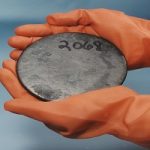FMWG Chair Miles Pomper, FMWG Steering Committee Member Kingston Rief, and FMWG Member Nick Roth provide insights on nuclear security spending in John Donnelly’s latest CQ article: “U.S. Spending Less to Secure World’s Nuclear Bomb Materials”. Nick Roth explains that despite a continued threat, “Political interest in preventing nuclear terrorism is waning,” as the Trump Administration […]
Why We Still Need to Cooperate with Russia on Nuclear Security
The disintegration of the Soviet Union in 1991 dismantled a highly centralized multi-national government, leaving behind 15 newly independent states, an economy in chaotic transition, and an enormous nuclear weapons complex. The sudden meltdown of the military structures that had managed the Soviet nuclear arsenal for decades left destructive weapons, technologies, and materials exposed and […]
Press Release: Experts: President Obama’s Visit to Hiroshima Reflects Major Non-Proliferation Progress
FOR IMMEDIATE RELEASE James McKeon jmckeon@armscontrolcenter.org 202.546.0795 X 2617 Cell: 814.460.6943 Washington, DC – In approximately 12 hours, President Obama will become the first sitting U.S. President to visit Hiroshima since the end of World War II. The nuclear bombings of Hiroshima and Nagasaki killed approximately 200,000 people. This extraordinary gesture reflects the robust modern […]
Summary of Senate Version of Fiscal 2016 National Defense Authorization Bill
On May 12, the Senate Armed Services Committee approved a $602 billion authorization bill by a vote of 23-3. The three Senators who voted no were reported as Deb Fischer (R-NB), Ted Cruz (R-TX) and Mike Lee (R-UT). Cruz said he voted no because of the provision requiring women to register for the draft. Lee […]
Fact Sheet: Preventing a Dirty Bomb: Why Radiological Security Matters
Updated March 2021 Nuclear terrorism poses a grave threat to human life. Though less devastating than a nuclear weapon, a terrorist incident featuring radiological material is far more likely due to the abundance of these materials and a widespread lack of adequate security. Consequently, physically protecting isotopes that could be used for a nuclear weapon […]


